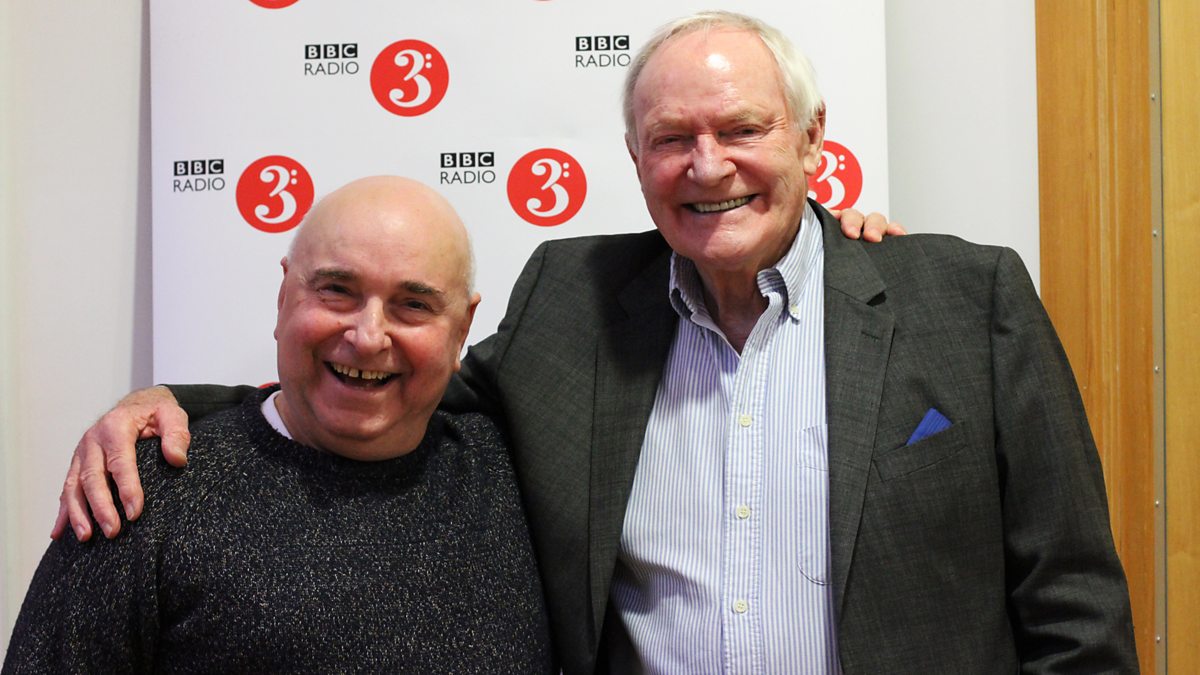Originally posted by NatBalance
View Post
Now then, I wasn't going to post this untill I'd finished with my other post but then I realised 'Wait a minute, folks on this forum should be interested in the actual content of the present episode of the show because our guest was a classical composer, and that will change after next Wednesday'. The content of the show is not what this post is about but if anyone would like to discuss that then so be it. The presenter says he is a popular composer but you'll find it very difficult to find anything about him, or examples of his music, on the Internet. I don't know how popular the Welsh composer Brain Hughes is, he might only be popular locally, but then as far as I know he may be very popular within the classical music community. I'd be interested to know how many folks here have heard of him.
I think he has some things to say that folks here might find interesting, but that is not why I am posting this thread. The reason for this thread is because I am interested to know if anyone will notice anything unusual about the show itself. There is nothing unusual about the format or content except that we try to encourage an eclectic choice from our guests, something from both the classical and pop world (or whatever the best way of saying that is) but we can only go so far with that given the title of the show, and this edition of the show is all classical, and serious classical aswell, which of course folks on this forum won't mind at all, not sure about the listeners to the radio station though, they might be turning off in droves. I feel it's almost like putting this kind of show on Radio 1. It's a fortnightly show and after next Wednesday it will change.
It's only a community radio station run by volunteers, except for two paid administrators, and I am new to the world of sound engineering so don't analyse too closely the quality of the recording. That's not what I am asking you to listen to. I'm not going to tell you yet what to look out for, but a clue is in my forum name and some of you might already know what that stands for, or perhaps can guess. You won't have to listen to the whole show in order to hear what is different about it, something I will be bold enough to say you won't find on any other show or station, you can just skip through and you might notice it. I have a feeling that many of you will not like it, on the other hand you might not even notice any difference.
Rich
I think he has some things to say that folks here might find interesting, but that is not why I am posting this thread. The reason for this thread is because I am interested to know if anyone will notice anything unusual about the show itself. There is nothing unusual about the format or content except that we try to encourage an eclectic choice from our guests, something from both the classical and pop world (or whatever the best way of saying that is) but we can only go so far with that given the title of the show, and this edition of the show is all classical, and serious classical aswell, which of course folks on this forum won't mind at all, not sure about the listeners to the radio station though, they might be turning off in droves. I feel it's almost like putting this kind of show on Radio 1. It's a fortnightly show and after next Wednesday it will change.
It's only a community radio station run by volunteers, except for two paid administrators, and I am new to the world of sound engineering so don't analyse too closely the quality of the recording. That's not what I am asking you to listen to. I'm not going to tell you yet what to look out for, but a clue is in my forum name and some of you might already know what that stands for, or perhaps can guess. You won't have to listen to the whole show in order to hear what is different about it, something I will be bold enough to say you won't find on any other show or station, you can just skip through and you might notice it. I have a feeling that many of you will not like it, on the other hand you might not even notice any difference.
Rich





Comment